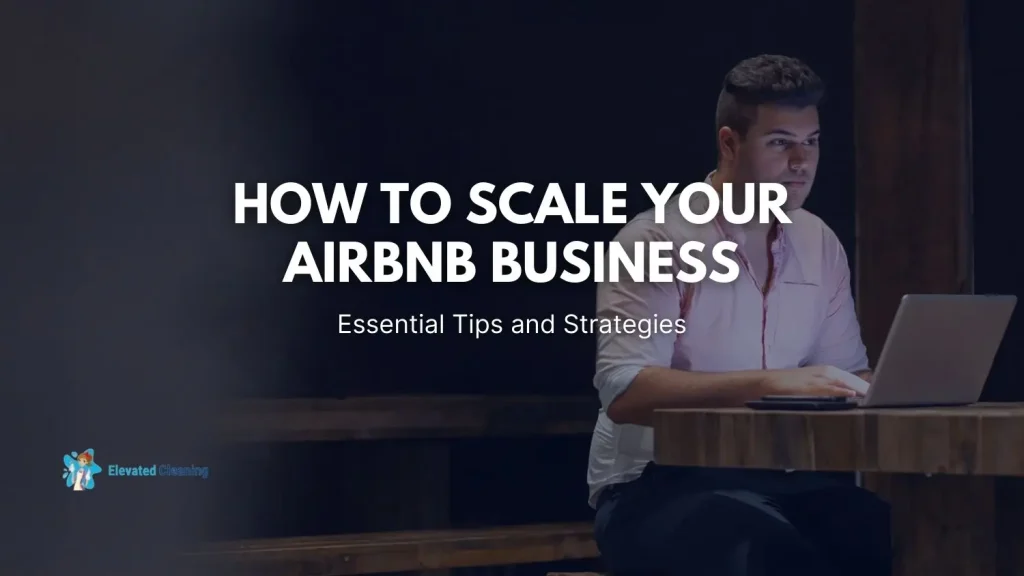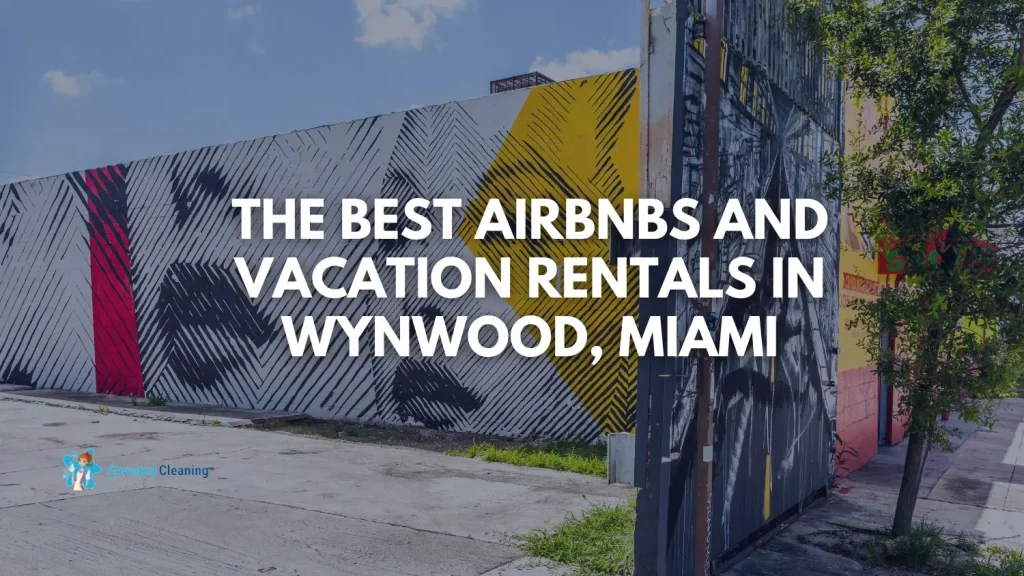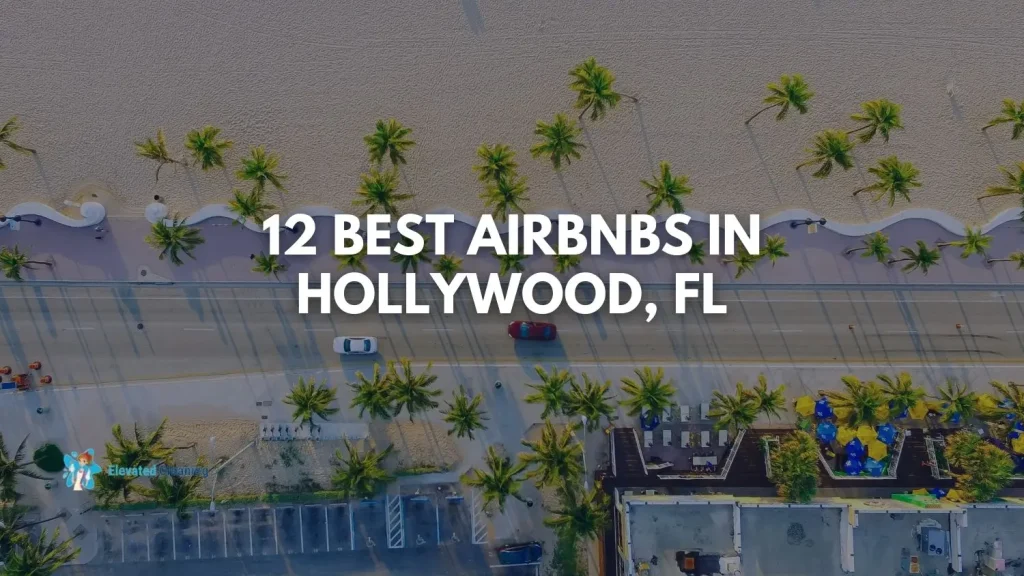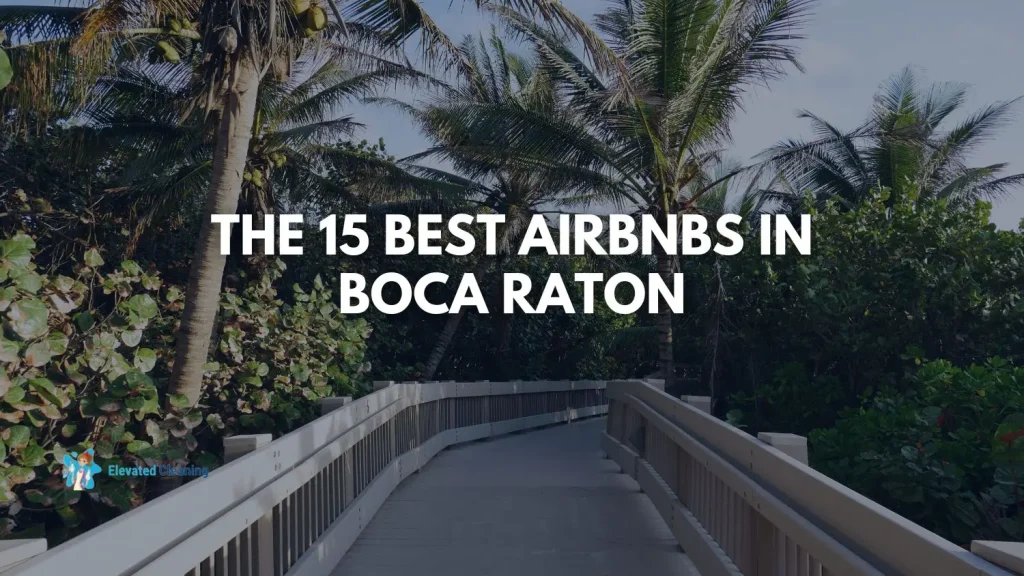Scaling an Airbnb business requires careful planning and execution to take your rental from a single property to a lucrative portfolio. Whether you want to turn your side hustle into a full-time business or seek financial freedom, expanding your Airbnb can be an effective path. However, the process involves implementing systems, automating operations, and managing multiple properties.
This comprehensive guide provides essential tips and proven strategies to help you scale your Airbnb rental business. From optimizing your listings to enhancing guest experiences, leveraging automation tools, expanding marketing reach, and managing reviews. This guide to scaling your Airbnb will cover everything you need to successfully grow your vacation rental portfolio. Let’s get started.
Optimizing Listings
The first step to scaling your Airbnb rental business is optimizing your existing listings. Before expanding to multiple properties, ensure your current listings perform at their best.
Review your listing content, including titles, descriptions, photos, pricing, availability calendar, and any additional details. Ensure accurate information, highlight the property’s best features, set proper guest expectations, and align with Airbnb’s guidelines. Consider professional photography to make an exceptional first impression.
Next, analyze listing performance by reviewing metrics in your Airbnb account dashboard. Identify peak occupancy periods, most popular rental configurations, average daily rate, and factors impacting bookings. Use these insights to optimize your pricing strategy, maximize occupancy, and increase your revenue.
Finally, guest reviews should be reviewed, and any consistent feedback about the property, amenities, location, or experience should be identified. Implement changes to keep improving with each stay.
With optimized listings established as a strong foundation, you’re ready to begin scaling your Airbnb rental business.
Streamlining Operations
Stripped operations are essential for sustainability when managing multiple Airbnb properties. Systemize recurring tasks to reduce hands-on management time per listing, freeing up bandwidth to scale.
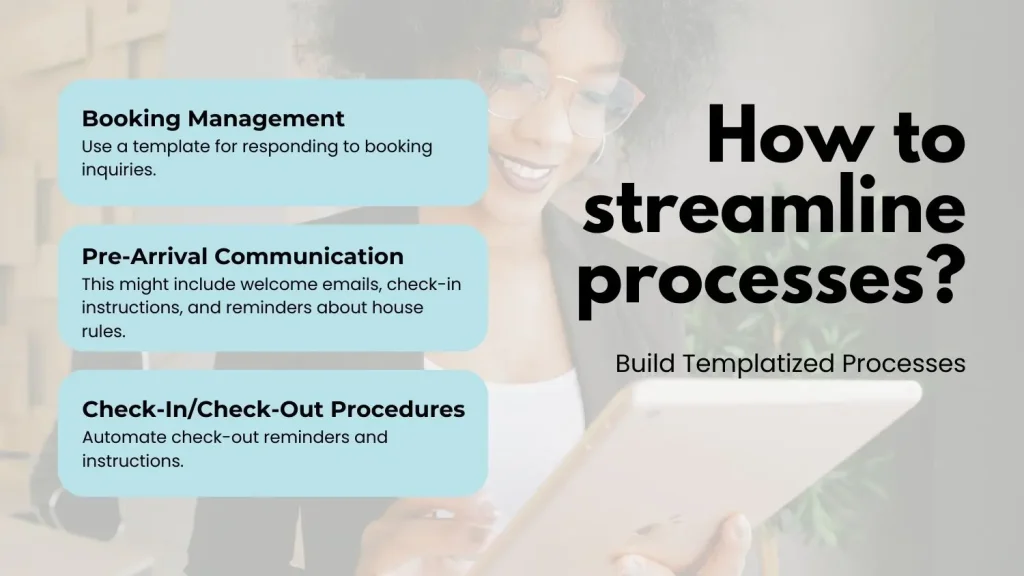
First, build templatized processes around hosting, including guest screening, booking, pre-arrival communication, check-in/check-out procedures, cleaning, maintenance requests, and more. Establish checklists, standardized messages, and documented systems.
Next, identify areas to outsource, like cleaning or maintenance. Find reliable third-party companies or individuals to handle all the cleaning and guest turnover. This will substantially reduce day-to-day efforts.
Finally, property management software should be implemented to centralize listing management, communication automation, dynamic pricing tools, and more. Streamlining operations is vital for effectively scaling your Airbnb business.
Utilizing Dynamic Pricing
An effective pricing strategy is vital when scaling an Airbnb business. With multiple listings across various neighborhoods and property types, dynamic pricing helps maximize revenues.
Dynamic pricing means frequently adjusting rates based on demand, seasonal changes, market conditions, and other factors. Tools like Beyond Pricing or Wheelhouse allow you to implement data-driven pricing across your portfolio.
Benefits include higher occupancy rates in slower periods by offering discounts, capitalizing on peak seasonal demand with premium pricing, and responding nimbly to local events or market fluctuations.
Set optimal baseline rates for each listing based on location, size, features, and market research. Dynamic pricing then frequently adjusts within set rate ranges depending on various factors.
Dynamic pricing is invaluable for revenue optimization as you scale listings. The software integration also saves significant time compared to manually evaluating and updating each listing’s rates.
Enhancing Guest Experiences
Providing an exceptional guest experience should be central to every Airbnb hosting strategy. This becomes even more vital when scaling your business.
Begin by developing consistent hosting processes focused on hospitality, thoughtful touches, and anticipating guests’ needs. Establish reliable procedures for check-in, a welcome book with local recommendations, light refreshments or snacks, a response time for issues, and friendly communication.
Secondly, ensure your properties are equipped with amenities to enhance the stay. This includes fast WiFi, comfortable bedding, helpful kitchen tools, entertainment options like smart TVs, and specialized offerings for business travelers.
Finally, closely monitor guest reviews across all listings, identifying opportunities to improve experiences. Pay attention to recurring feedback, staying continually informed to address emerging needs.
Delivering amazing guest journeys plays a huge role in Airbnb’s success. These exceptional experiences lead to 5-star reviews, elevated search rankings, repeat visits, and guest referrals—compounding benefits as you scale up.
Expanding Marketing Reach
A multifaceted marketing strategy is vital when scaling an Airbnb business to continually drive bookings across all properties. Expanded reach taps into new guest demographics.
Begin by ensuring listings are displayed on additional channels beyond Airbnb, like Booking.com, VRBO, and direct booking sites. Cross-list properties anywhere applicable to increase visibility.
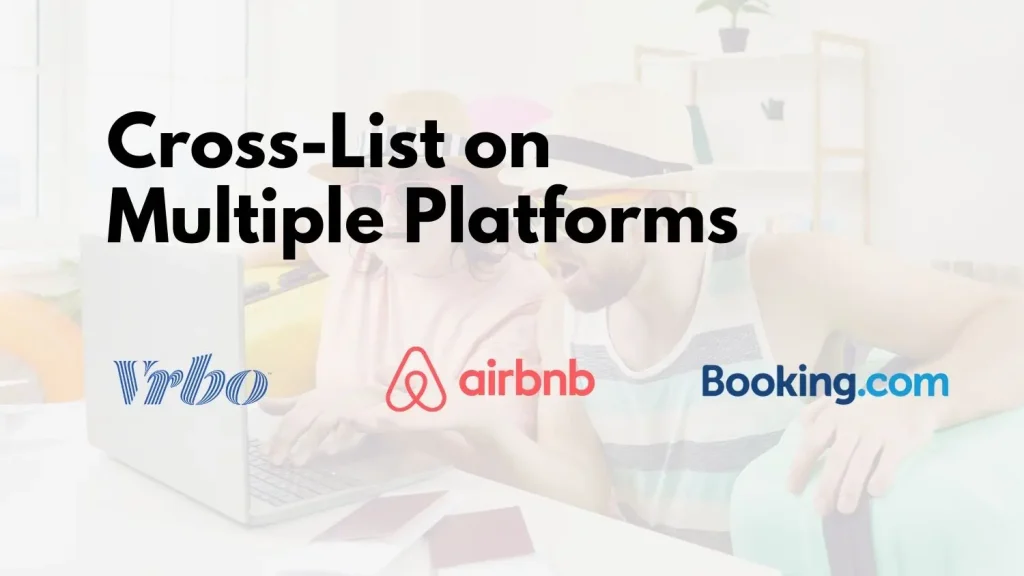
Next, develop targeted digital marketing campaigns across various platforms like Facebook, Instagram, and Google. Precision ad targeting, retargeting past guests, seasonal promotions, and tailored creatives should be incorporated.
Additionally, focus on securing glowing guest reviews, boosting listings higher in Airbnb’s algorithmic search rankings. Similarly, pursue Superhost status by delivering incredible stays, enabling perks like prominent badging.
As you grow your business through scaling, dedicating time to expand marketing and distribution into more channels will significantly impact continuous bookings and financial success.
Leveraging Automation Tools
Automating repetitive tasks is instrumental when scaling an Airbnb business. The multitude of daily hosting duties per listing becomes unmanageable without technology assistance.
Solutions like Guesty, Hostfully, or Lodgify empower vacation rental owners to scale their businesses. Property management software centralizes listing management, automation communication tools, task delegation tools for cleaners or maintenance crews, 24/7 guest messaging, dynamic pricing adjustments, and much more.
Additionally, invest in smart home technology installations enabling remote property control and limited physical site visits. Smart locks allow contactless digital check-in, while sensors monitor utility usage or automatically adjust the temperature. Some systems detect damages or vandalism.
The ability to oversee and manage listings from anywhere allows small teams to effectively scale far larger portfolios than otherwise possible. Combined with streamlined operations, automation is invaluable.
Maximizing Occupancy Rates
Achieving consistently high occupancy rates is key to maximizing revenues as you scale up rental properties. With multiple vacant units generating no income, optimizing bookings is crucial.
Start by leveraging dynamic pricing to calibrate rates to market demand and seasonal fluctuations. Regular fine-tuning balances rate and occupancy optimization.
Next, widen marketing distribution into additional channels, expanding visibility to fresh guest demographics. Cross-list eligible properties to increase booking potential.
Analyze past stay patterns by location, unit type, configurations, and length. Identify the most lucrative options per listing and concentrate on driving those stays through pricing incentives or promotional offers at targeted times annually.
Finally, monitor listing content and guest satisfaction closely. Keep descriptions and photos vibrant and current while addressing any recurring guest feedback impacting rebooking rates.
With the right strategies, savvy Airbnb owners enjoy ~80-90% annual occupancy across scaled portfolios. The key is continually testing and optimizing rates, marketing, and content for maximum bookings.
Managing Reviews and Feedback
Managing guest reviews should be a top priority when scaling an Airbnb rental business. Reviews directly impact future bookings, search visibility, and long-term success.
First, continually monitor incoming reviews across all listings with management business software alerts. Be prompt in addressing any negative feedback or low star ratings through guest communication. Have policies for addressing issues, offering resolutions, or leaving public responses.
Next, analyze reviews to identify recurring issues or opportunities to improve experiences. Look for patterns across properties, units, certain building features, or aspects of your hospitality. Implement changes addressing feedback.
Finally, proactively request 5-star reviews from happy guests during and after stays. Survey guests on experience satisfaction and respond promptly to suggestions. A high review volume and ratings signal strong performance to future bookers.
Closely managing the guest review process provides invaluable insights while showcasing your stellar hospitality as an Airbnb host scaling up your short-term rental portfolio.
Delivering Hospitable Experiences
Being hospitable is key to successful Airbnb hosting. You’ll be able to scale your business through delighted guests eager to return and refer friends. Set the stage for amazing stays with warm, personalized communication, anticipate guests’ needs to provide a welcoming experience, and maintain consistent 5-star hospitality across your properties.
Go beyond simply providing clean accommodations and amenities. Take additional steps to delight your guests and curate a thoughtful, seamless experience from initial inquiry through post-stay. Welcome visitors with a cheerful orientation highlighting the special features of the unit and local insider tips personalized to their trip purpose.
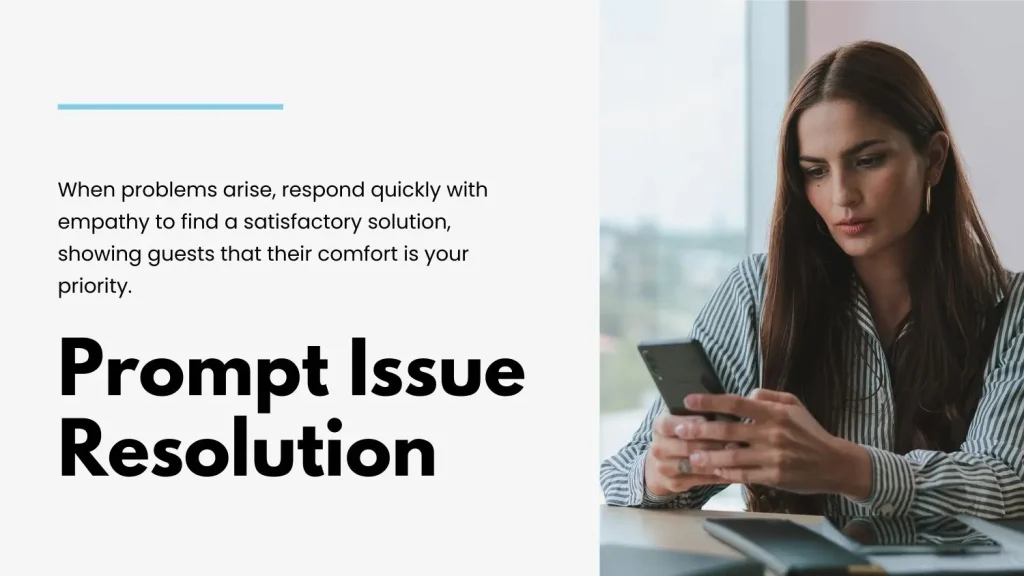
Check-in periodically to ensure all is going well. To showcase your attentiveness, offer local newsletters or activity recommendations tailored to the interests they shared when booking. Supply small touches like a welcome snack or departure gift reflecting the region. When issues arise, respond promptly with empathy and understanding to find a satisfactory resolution.
Provide the human touch even while leveraging automation tools behind the scenes to smooth operation. These hospitality best practices encourage outstanding reviews, repeat visits, and guest referrals to friends.
New hosts should prioritize developing consistent hospitality skillsets that enable the phenomenal experiences guests seek from the sharing economy before aggressively expanding into numerous listings. Mastering hospitality lays the foundation for successfully scaling your rental business sustainably.
Following Best Practices
Leverage best practices for your listings, like professional photography, detailed descriptions, accurate availability calendars, competitive dynamic pricing, strict cleaning protocols, and highly-rated amenities. Guests have high expectations, so optimizing these listing elements as part of your brand template helps drive bookings and great reviews.
Professional photography is non-negotiable, influencing guest trust and conveying the unit’s offerings accurately. Additionally, meticulously crafted descriptions calling out niche perks along with necessary technical details give guests ample information to evaluate if the accommodation matches their needs.
Ensure the availability calendar and dynamic pricing both stay current. Establish thorough pre-stay cleaning procedures like floor mopping, bathroom disinfecting, linen replacement, and eliminating odors – then conduct consistent quality checks against protocol.
Finally, provide amenities travelers expect, such as WiFi, premium TV streaming accounts with clear usage instructions listed, USB chargers, hair dryers, hangers, luggage racks, and well-stocked kitchen tools.
As you grow, templatize by creating unified amenity checklists for each property type to allow for efficient restocking and maintenance reviews. Listings aligning with these best practices signal high-quality, reliable offerings to prospective guests that your entire portfolio aims to deliver – enabling smooth scaling.
Utilizing Tools Like Airbnb
Platforms like Airbnb provide robust analytics into your listings’ performance. Dive into the data to gain actionable insights into optimizing rates to maximize revenues, identifying peak seasonal demand periods, surveying guest demographics, and tracking metrics over time. Continually fine-tune your listings for increased conversion rates and rebookings.
Airbnb and other vacation rental platforms offer built-in analytics tools accessible through management dashboards. These tools allow owners to tap into pivotal data to guide smarter business decisions.
Review metrics like average daily rates and occupancy percentages week over week. Pay attention to seasons and events that dramatically increase bookings at premium pricing for certain unit types more than others. You’ll also spot lower-demand periods warranting promotions for dip fills.
Additionally, occupancy goal shortcomings may signal listing content issues if other area rentals stay mostly booked. Savvy owners also survey guests upon stay completion to better understand visiting groups’ demographics, trip purpose, user experience, and satisfaction. This feedback fuels improvements over time as you scale up listings.
Ensure to track key metrics longitudinally month-over-month to identify precise impacts from pricing adjustments, booking promotions, or listing content revamps based on observed patterns. Leverage the insights from analytics tools as fuel for continuous fine-tuning and performance optimization across the portfolio.
Earning Airbnb Superhost Status
Becoming an official Airbnb Superhost signals an experienced, high-quality host to prospective guests. Superhosts reflect the top tier of hosts, so displaying this badge can significantly influence potential guests’ booking decisions and instill confidence. Deliver exceptional stays, communicate smoothly, and maintain a high response rate to qualify.
The Superhost badge is displayed prominently alongside listings meeting elevated hosting standards, such as experience, overall 5-star ratings, low cancellation rates, and excellent response times. Travelers immediately recognize that Superhosts go above and beyond ordinary hosts, influencing guest expectations and trust.
One study by Hospitable revealed listings displayed with the vibrant Superhost badge benefitted from a booking boost averaging 15% higher than comparable non-badged listings. Achieving this elite status requires consistently positive reviews, few last-minute cancellations disrupting guest plans, and responsiveness to inquiry messages within 24 hours.
Additionally, a year or more actively hosting pays dividends through gained wisdom. For rental entrepreneurs scaled up across numerous listings, pursuing Superhost status provides massive benefits, increased bookings, and amplified credibility with new guests – directly impacting revenues. Make attaining and retaining Superhost designations a priority across the portfolio.
Securing Insurance
Operating shared accommodation spaces like vacation rentals comes with unique risks. Ensure you have adequate insurance for Airbnb stays, including both property damage protection and liability coverage. The right Airbnb insurance tailored to short-term rentals is essential because typical homeowner/renter policies often exclude these instances. Don’t take chances.
Since guests regularly turn in short-term rentals, increased risks of property damage or accidents exist. Incidents like wine spilled on carpet, electronics or appliances broken, linen stains, holed walls, scratched furniture, and more can leave hosts with expensive replacement costs or repairs if not properly insured.
Many home or renter policies explicitly exclude commercial activity coverage, meaning claims from Airbnb damages may be denied. Specialized short-term rental insurance fills this gap, bundling both property protection and liability coverage starting at around $500 annually for up to $3 million policy limits.
Some providers like Proper and Slice even bake in surety bonds protecting future bookings if a listing falls through, along with 24/7 emergency hotlines. Don’t put your investments at risk – invest in proper insurance coverage specialized for vacation rental properties before listing to enable your portfolio to scale securely.
Conclusion
Scaling an Airbnb rental business to multiple properties involves extensive work, but if executed properly, it pays dividends through massively increased income potential. By systematically optimizing operations, maximizing occupancies, enhancing guest stays, and leveraging automation tools, small teams can effectively scale far larger portfolios than otherwise possible.
Additionally, the tips and strategies outlined above help unlock efficiencies and performance benefits that are only attainable at larger scales, like expanded marketing reach, revenue management technology, and more. While launching a single Airbnb property has simpler initial barriers, building to a multi-unit scale enables uniquely lucrative results.
Frequently Asked Questions on How to Scale Your Airbnb Business
what are some guides to scaling my vacation rental business?
Some key steps are optimizing your listings, systematizing operations, leveraging automation tools, enhancing guest experiences, expanding marketing, and managing reviews. Review your analytics to identify improvement opportunities before expanding to more properties. Gradually scale your short-term rental business through hosting experience.
How many Airbnb listings can a property manager handle?
An experienced full-time property manager can typically oversee 40-50 listings depending on the level of automation and infrastructure in place. Less experienced managers may start with 10-20 properties while building efficient systems. Property managers should continuously evaluate capacity.
What tasks do Airbnb property managers handle?
Property managers handle advertising, guest communication, pricing adjustments, cleaning coordination, restocking amenities, maintenance issues, 24/7 emergency support, and managing reviews. Software and checklists streamline recurring tasks like check-ins.
How do I become an Airbnb host?
To start an Airbnb, first use marketing tools to estimate potential occupancy and revenue for properties you’re considering. Set up attractive listings with professional photography and detailed descriptions. Establish house rules, prices, and availability calendars. Leverage smart home technology for access, and identify a reliable cleaner. Welcome your first guests!
What occupancy rate is realistic?
For full-home rentals, aim for at least 50-60% average annual occupancy as you get started. Leverage dynamic pricing, promotions, and marketing to drive bookings during slower periods. As you refine your business, ~80-90% occupancy is achievable.
How do I prepare my home for Airbnb?
Deep clean your property and perform maintenance like painting. Set up a digital or keypad lock for smooth check-in. Stock amenities like fresh linens, toiletries, coffee, snacks, tourism brochures, and wi-fi/entertainment logins. Create a welcome binder with house information, local favorites, contact details, and more.
What makes a good Airbnb host?
Great hosts have excellent communication skills, a hospitality mindset toward the guest experience, and systems that enable consistent 5-star stays. You can scale higher occupancy through reviews, Superhost status, and organic bookings. Focus on streamlined operations and smart pricing.
How do I price my Airbnb?
When launching, research comparable listings in your area to determine market rates based on property type, size, amenities, and seasonality. Monitor demand and set dynamic pricing ranges to respond to trends. As you gain experience, analyze metrics driving your most lucrative stays. Price competitively to keep occupancy high during slower periods.
How do I get more bookings on Airbnb?
Boost bookings through listing optimization, utilizing Airbnb’s upgrades, running promotions, prioritizing 5-star reviews, implementing dynamic pricing, expanding distribution channels, and investing in marketing campaigns. Pay-per-booking photography services also typically increase conversion rates. Consistently deliver excellent guest experiences to drive rebookings and referrals!
When should I expand into more Airbnb properties?
First, consistently generate strong occupancy and cash flow from your initial listings with excellent reviews. Systematize your business processes to operate efficiently at scale. Only then should you consider adding another managed unit, like a second property or private room. Gradually expand based on your bandwidth, slowly scaling up over time. Don’t rush into rapid growth prematurely—master each stage first.
